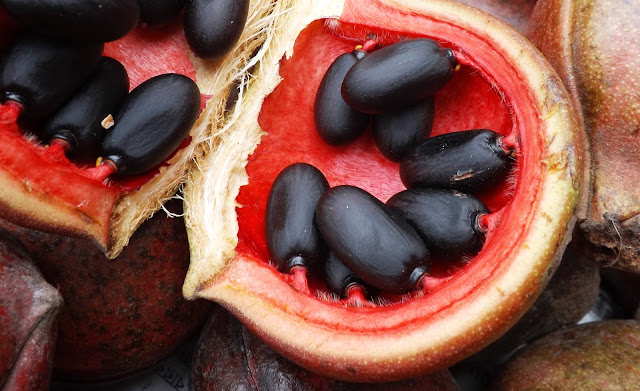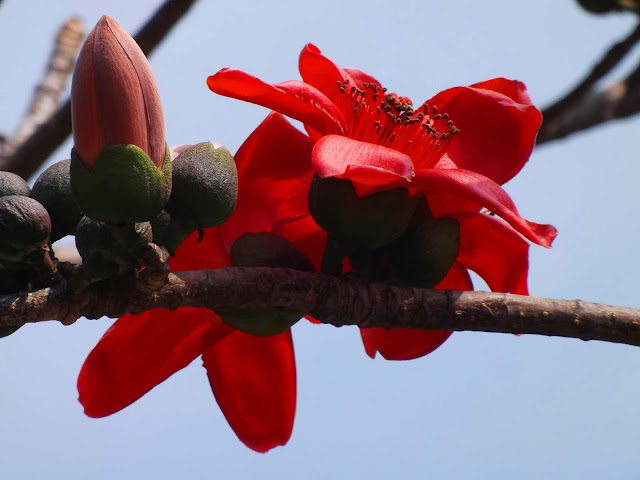Jongli badam or Bastard poon tree, Sterculia foetida
Jongli badam or Bastard poon tree (Sterculia foetida, family: Sterculuaceae) is a large deciduous tree, up to 20 m in height, with branches arranged in whorls and spreading horizontally. Trunk is robust and straight. There are eye-like glands on the grey-colored bark. The tree has some resembles with Shimul.
The children are in the womb!
Leaves are digitately compound, leaflets 5-8, crowded at the end of branches, elliptic-lanceolate, tip elongated, acuminate, 10-18 cm long and 4-5 cm wide, petiole is very long, about 20 cm, though the length of leaflets are very short, almost sessile.
Although the flowers are beautiful but those have a very unpleasant odour. For this reason, the species have been named foetida. Interestingly, flowers have no petals!
Fruit is boat-shaped, woody, red in color, smooth outside, fibrous inside, 1-5 in a group, 10-12 cm long and 5-8 cm wide. Seeds 10-25, 2 cm long, black in color.
The tree is propagated from seeds. It originally grew from the equatorial region of Africa to Australia. As an ornamental tree it is planted in Park and gardens in Bangladesh. It is mainly found in the coastal areas of the country.
Raw seed is edible and very nutritious and tasty indded. It tastes almost like Peanut. It is used as purgative. Rope is made of its bark. Box badam is the another name of the plant.








7A8FCD803E
ReplyDeletetakipçi satın al
Lodyo.com Güvenilir mi
Bitlo Güvenilir mi
Tiktok Takipçi Atma
Sahte Takipçi